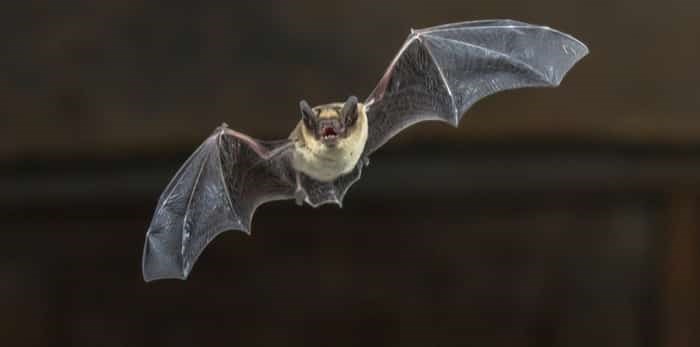Dr. Bonnie Henry, Provincial Health officer, has confirmed that a man has died after contracting rabies from a bat on Vancouver Island.
The man, who was in his mid-20s, came in contact with a bat in mid-may and developed symptoms compatible with rabies six weeks later. He later died of the rare case of viral rabies at St. Paul’s Hospital in Vancouver, but no further information about the individual has been released. This is the most-recent case of human rabies in B.C. since 2003.
 Pipistrelle bat flying in darkness / Shutterstock
Pipistrelle bat flying in darkness / Shutterstock
Family members, close community contacts and health-care workers who cared for this person are being assessed and given post-exposure rabies preventive measures, if needed.
While the exposure in this case was on Vancouver Island, bats in all areas of B.C. are known to carry rabies. However, there have only been 24 known cases of rabies in Canada since the 1920s.
If anyone in B.C. comes in contact with a bat (even if there is no obvious bite or scratch), wash the area with soap and water. Then consult a health-care provider or local public health department immediately. They will assess the risk of rabies and may provide a vaccine to prevent infection.
After exposure to a rabies virus, it is crucial to begin prevention treatment for rabies as soon as possible. It typically takes from 3 to 8 weeks before rabies symptoms start in humans but can be much longer. If you wait until the symptoms appear, it is usually too late to start effective medical treatment
Bats are the only known carriers of the rabies virus in the province. About 13% of bats tested in B.C. are positive for rabies. This presents an ongoing risk for people and for companion animals, such as cats and dogs. It is important to ensure pets rabies vaccinations are up to date. If you believe your pet has had contact with a bat, consult your veterinarian.


